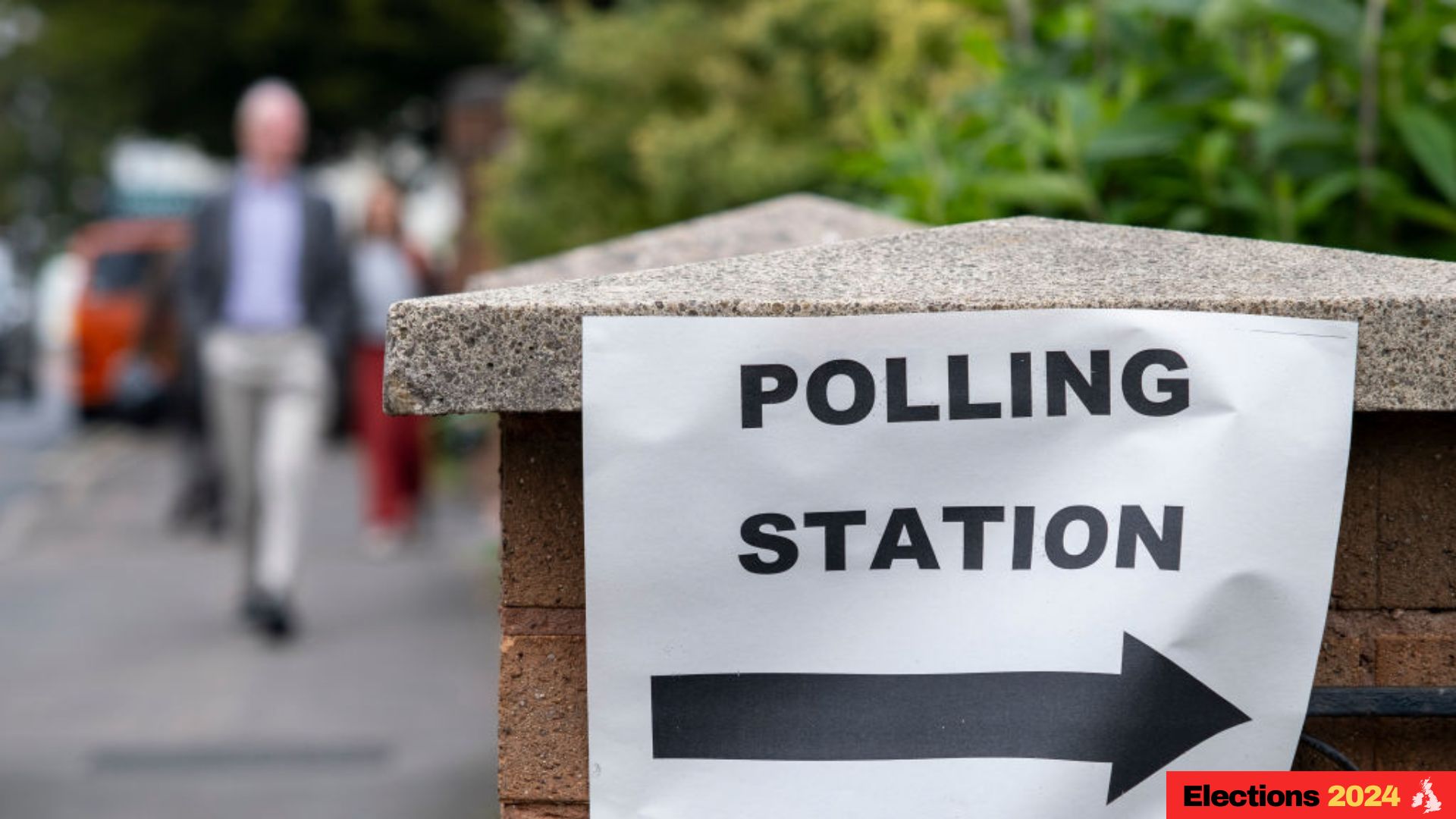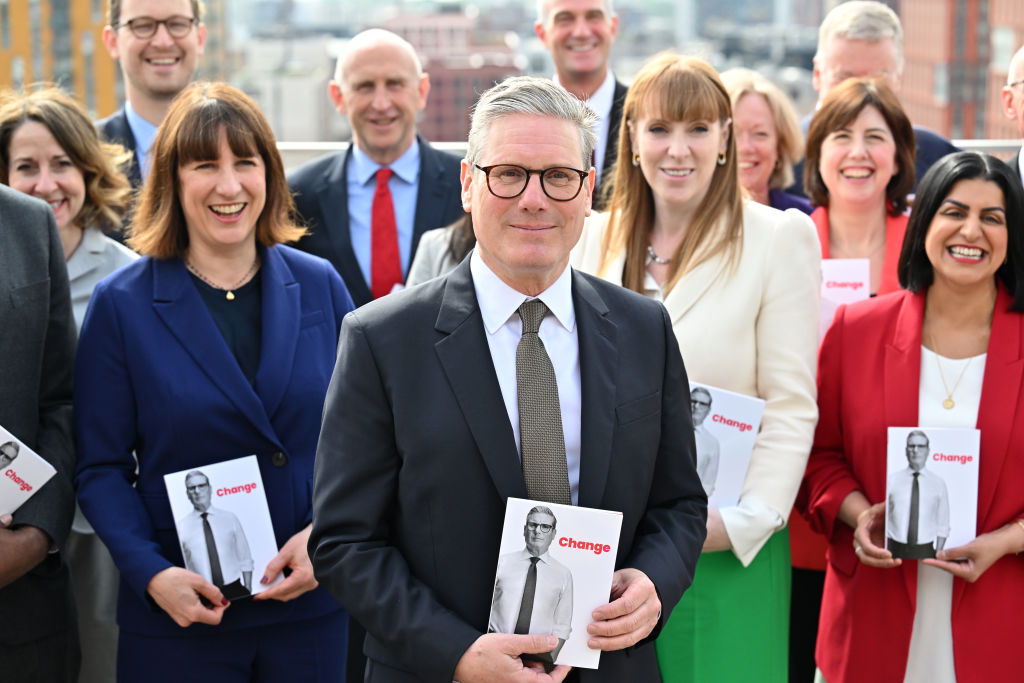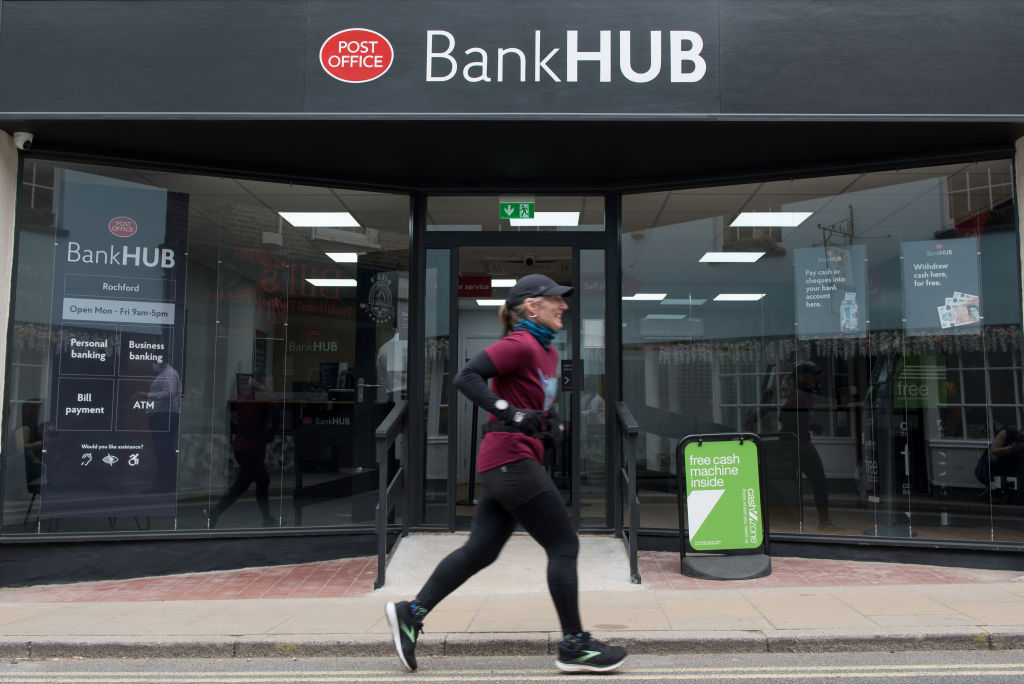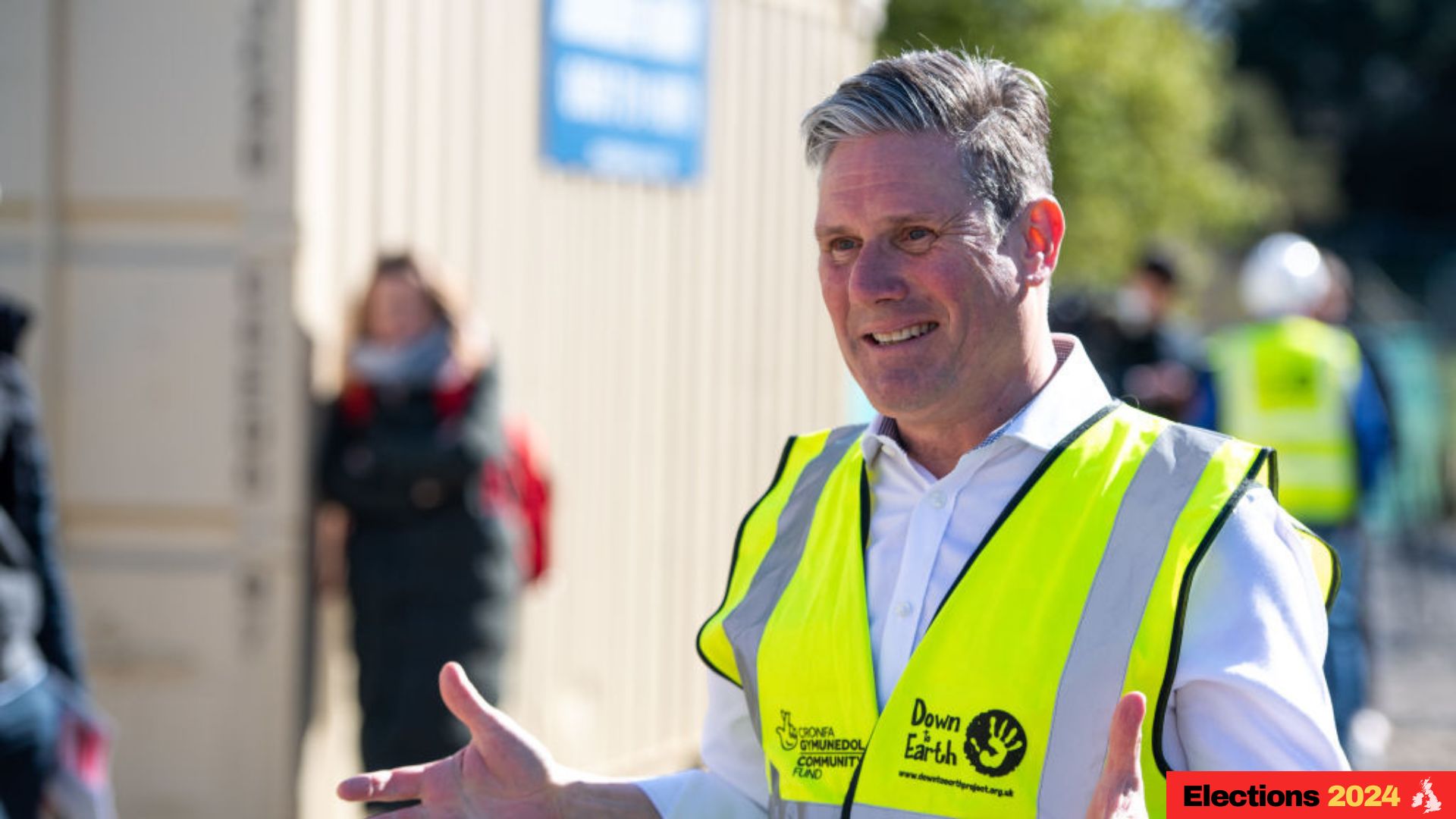How to vote at the 2024 general election
In this piece, we explain how to vote on polling day. We also explain how to register to vote and apply for a postal vote at future UK elections.

Katie Williams

Get the latest financial news, insights and expert analysis from our award-winning MoneyWeek team, to help you understand what really matters when it comes to your finances.
You are now subscribed
Your newsletter sign-up was successful
Want to add more newsletters?

Twice daily
MoneyWeek
Get the latest financial news, insights and expert analysis from our award-winning MoneyWeek team, to help you understand what really matters when it comes to your finances.

Four times a week
Look After My Bills
Sign up to our free money-saving newsletter, filled with the latest news and expert advice to help you find the best tips and deals for managing your bills. Start saving today!
The 2024 general election is here, which means it's crucial you know how to vote on 4 July.
All of the major parties have set out their manifestos. Prime Minister Rishi Sunak's Conservative manifesto targets older voters with policies like the triple lock plus and tax cuts. Meanwhile, Labour leader Sir Keir Starmer has gone for a very low-key set of pledges in the Labour manifesto, the most eye-catching of which include housing market changes and plans to remove private school tax breaks.
The SNP, Lib Dems, Green Party and Reform UK have all come up with proposals that run across the political spectrum. We've rounded up which parties have the best policies for you.
MoneyWeek
Subscribe to MoneyWeek today and get your first six magazine issues absolutely FREE

Sign up to Money Morning
Don't miss the latest investment and personal finances news, market analysis, plus money-saving tips with our free twice-daily newsletter
Don't miss the latest investment and personal finances news, market analysis, plus money-saving tips with our free twice-daily newsletter
Given the size of the two main parties, it's almost certain that there will be a Sunak or Starmer-led government after 4 July. According to the polls, Starmer is the much more likely of the two to get into 10 Downing Street.
But at a constituency level, many of the contests could be very tight indeed. So, it is important that you get the opportunity to have your say. Here's how to vote.
How to vote on 2024 general election day
If you’re planning to vote in person, you should have had a polling card sent to your registered address. It will tell you where your local polling station is, and when it opens and closes on 4 July (voting hours are usually 7am until 10pm). Should a poll card not arrive, you can still vote so long as you were registered in time (see more below).
Before heading to the polling station, it’s vital to remember that you now have to take a form of photo ID with you. A UK or Northern Ireland photocard driving licence (full of provisional) will suffice, or you can take your passport along with you. A full list of accepted forms of ID can be found on the government website. If you forget it, you can go back to the polling station at a later time.
When you arrive at the polling station, you will have to show this ID and give your name and address to the people working there. They will then give you your ballot paper, which you will then have to take into a polling booth to fill out.
Instructions for what to do are on top of your ballot paper, but it usually involves putting a cross next to the candidate you wish to elect. Once you’ve folded your ballot paper and put it into the ballot box, you’re all done and free to leave.
Proxy voters may have to travel to a different polling station to vote on behalf of someone (it depends on where the person who can’t be there is registered to vote). They too must take an accepted form of photo ID with them.
How to register to vote in the UK election
The deadline to register to vote in the general election has passed. But you can still register to take part in future UK elections, either through the government’s online portal or apply via post.
It should also be noted that you legally have to be on the electoral roll if you’re of voting age. If you don’t sign up, or fail to provide the right details, you could be fined. You can apply to be on it from the age of 16 in England and Northern Ireland (14 in Scotland and Wales).
When applying, you will need to give your name, date of birth, address and National Insurance number. The process will also ask you whether you want to be included on the open register, or kept off it.
Being on the open register means some of your personal details can be viewed by other members of the public and businesses. You can opt out of it at any time by going through the registration process again. You do not have to be on the open register to improve your credit score.
If you’re unsure about whether or not you’re registered to vote, you should contact your local electoral registration office. Once a year, or if you move house, you may get a letter asking you who’s registered to vote at your address, and whether the details they have for the people living in your home are correct. Say you get married and change your name, you will be expected to update your details by registering again.
How do I apply for a postal vote?
Before applying for a postal vote, you have to have registered to vote. The deadline to have done so for the 2024 general election has now passed, as has the application window for postal votes.
To apply, you will need to head to the government website. You must also have your National Insurance number (or an ID document, such as a passport) to hand, as well as a black ink pen and a crease-free sheet of paper.
During the process, you will be asked for your name, date of birth and address, as well as where you want your ballot to be sent and how long you want to have a postal vote for. You can have one for a specific public poll, a set period, or for almost any election in the next three years. You should note that there are exclusions if you live in Scotland or Wales. A different application process applies in Northern Ireland, where you’ll be asked to give a reason why you can’t vote in person.
The postal vote application process will then ask you for your National Insurance number, before getting you to upload your signature. Once you’ve checked all of these things off, your application will be sent to your local electoral office. You should receive confirmation within 10 working days. The electoral office will contact you if there are any issues with your application. You can also download a paper form if you wish to apply via post.
Your postal vote will then be sent out to you soon after the candidate list for your constituency has been confirmed. When it arrives, you should cast your vote and then send it back to the local election authority in the envelope they provide as soon as possible to ensure your ballot makes it back on time. If you wait too long, you may have to head to your local polling station, or electoral office, with your ballot before 10pm on election day – or not vote at all. If your postal vote won’t make it to the location you’ve put down in time for you to vote, you will have to create a new application.
You can also vote by appointing a proxy, i.e. someone who you trust, who can head to your local polling station to vote on your behalf. To do so, both you and your proxy have to be registered to vote. Proxies can vote on behalf of two other people (four if two of them live abroad).
As well as being away, you can only go down this voting route if you’re registered as an overseas voter (see more below), have a medical condition or disability, or have work or national service (e.g. military) commitments that require you to be elsewhere on the day.
The deadline for proxy vote applications in England, Scotland and Wales is six working days before the polling date (Wednesday 26 June in the case of the 2024 general election). In Northern Ireland, the deadline comes fourteen working days before polling day. You may be able to get an emergency proxy vote up until the election day itself if you find yourself unable to head to your polling station at short notice.
How to register to vote if you live abroad
The deadline for people living abroad to register to vote has also passed for the 2024 general election. But if you’re still classed as a British citizen, you can apply for a postal or proxy vote for a future election.
To register, you have to use the main government registration portal and put yourself down as an overseas voter. You will then be able to vote in UK parliament elections and some forms of referenda for a three year period. You will then need to reapply.
If you’re a citizen of a Commonwealth, EU or other European country but live full-time in the UK, you can also register to vote.
Get the latest financial news, insights and expert analysis from our award-winning MoneyWeek team, to help you understand what really matters when it comes to your finances.
-
 Pension Credit: should the mixed-age couples rule be scrapped?
Pension Credit: should the mixed-age couples rule be scrapped?The mixed-age couples rule was introduced in May 2019 to reserve pension credit for older households but a charity warns it is unfair
-
 Average income tax by area: The parts of the UK paying the most tax mapped
Average income tax by area: The parts of the UK paying the most tax mappedThe UK’s total income tax bill was £240.7 billion 2022/23, but the tax burden is not spread equally around the country. We look at the towns and boroughs that have the highest average income tax bill.
-
 General election 2024: who’s in the Labour cabinet?
General election 2024: who’s in the Labour cabinet?A new Labour cabinet has been appointed by Keir Starmer after his party won the general election. Here’s the latest on who’s in it
-
 What does the Labour election win mean for your money? Key manifesto points after landslide
What does the Labour election win mean for your money? Key manifesto points after landslideNews The Labour election win was not as large as some polls had predicted. But the new government’s majority will mean it can enact significant changes.
-
 What would a Labour supermajority mean for capital markets?
What would a Labour supermajority mean for capital markets?The Conservative Party has warned that a Labour supermajority would be bad for democracy. But what impact could a big win for Keir Starmer have on the markets?
-
 SNP manifesto 2024: what money policies did John Swinney announce?
SNP manifesto 2024: what money policies did John Swinney announce?The SNP manifesto has been launched in Scotland, and makes several key commitments, including a pledge to end austerity and a commitment to rejoin the EU.
-
 Labour pledges to open 'at least' 350 banking hubs over next Parliament
Labour pledges to open 'at least' 350 banking hubs over next ParliamentNews The Labour Party claims it will ‘bring banking back to the high street’ if it forms the next government after the 2024 general election.
-
 What does the Labour manifesto say about property? Key 2024 general election pledges
What does the Labour manifesto say about property? Key 2024 general election pledgesNews The Labour manifesto has made several promises around rental reforms, the leasehold system and housing market support. Here’s what a Keir Starmer government means for property.
-
 Green Party manifesto 2024: key personal finance general election policies
Green Party manifesto 2024: key personal finance general election policiesA Green Party government would introduce a wealth tax, increase National Insurance Contributions for high earners, and move towards a universal basic income.
-
 Conservatives pledge to raise high income child benefit threshold – how much could you save?
Conservatives pledge to raise high income child benefit threshold – how much could you save?News The high income child benefit charge threshold could be doubled to £120,000 if the Conservative Party wins the general election, Chancellor Jeremy Hunt has pledged.
